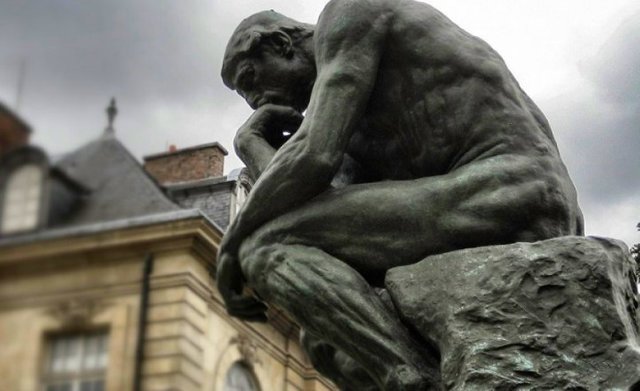What is maturity? A reflection on the concept

Greetings to all who see this post, I want to share a reflection on what I think about maturity, I hope you like it.
I have to admit that when I was young I thought of adults as almost perfect beings, that they could do everything, that they knew everything, without fear, with equanimity and with a great sense of justice. Obviously it was a big mistake that I was leaving little by little, and as I have been checking is a more common mistake than it seems.
As one develops, one is surprised by the class of adults with whom he lives, especially when compared to that image that was held long ago.
When one acquires a more critical vision and looks around one finds people of all kinds, with adults who are many years old but less intelligent than a child, mature children, immature adults, young adults or children as "grown up" as their parents, irresponsible adults, working children and especially with people who have learned little from their long journey through life.
How to know where we are?
Maturity is synonymous with wisdom, prudence, good judgment, and we say that something is mature when it has grown and is perfected, and it is a quality with which we can distinguish one element from the rest, with what we can say that if everyone stands out for his wisdom, prudence, good judgment, and always be situated in the best of its existence may lack of maturity was not a source of problems in the world and we could dedicate these lines to make a better planet or even to plan how to go to live others, but no, we are surprised by the greedy people who steal the public money, by the violent, by the crazy and even by the bad parents and bad children, that is, by the people who have not bothered to mature and that have become abortions of adults, with deformed intellects, emotions and virtues.
Many people attribute the current problems to the economic system, to the democratic system, to religious institutions, to education, to justice, to ideologies ... when really all of the above are only ideas and organizations that work with people, that is, the problem will always be the bad and / or stupid people (so defined), and not so much the systems or conditions that engender them, as Sartre said "Every man is what he does with what they did with him".

Here we can see a picture of the correct evolution of a person, who grows learning from life, who matures and evolves thanks to reflection and self-criticism, until he has enough wisdom to be able to transmit to the following generations who need a good life learning .
Meditating on this concept, I came to the idea that maturity only comes when you face problems with solutions, when you do not face them you are not mature, and when you do not have the strength or creativity to face it, you have left it far behind.
So with the diagram in hand we can reach the following conclusions:
- During our learning stage we can download the responsibility of our problems until society or our conditions allow it.
- If an adult does not give solutions to problems, it has not matured.
- The normal thing is that we give solutions to the problems based on our experiences, beliefs, influences ... that is to say, what we have and what surrounds us, if there is not some kind of reference they can turn out to be bad solutions.
- Self-criticism serves to reason and reflect on the validity and usefulness of these solutions, something that increases our maturity and will make us have better solutions.
- Thanks to a good critical spirit we reach a more authentic and worked vision of the environment in which we live, reaching a self-knowledge with which we will have a useful wisdom for the following people interested in learning about life, making them reach a useful maturity beforehand. and practice for your life.
If you have ever had the sensation of taking the reins and start thinking and executing the necessary solutions for one or several problems, and you have noticed that this has become a habit, welcome to the blue box, you have to start to review your experiences , beliefs, sensations and influences to keep evolving.
Are there adults who shun their problems? Are there adults who always give the same solutions even if they are wrong? Are there adults who are influenced in their solutions? Each one that draws its own conclusions and that qualifies the level of maturity that would give them ... the doubt and the reflection are necessary for the maturity and for an internal evolution.
What is the relationship between philosophy and maturity?

We well know that a philosopher is a lover of wisdom, and seeks wisdom mainly by a question, where is the truth?
This question can go from extreme situations to everyday situations, the power of philosophy is in doubt and in everything that is learned, and given that each of us interprets reality in a unique way we will have our own doubts and our own truths, although without reflection and self-criticism there is someone who spends his life without spending a minute reaching his own answers.
We are talking about that maturity is reached by assuming the responsibility of giving solutions to the problems that come to us as a habit, and often these problems can be of philosophical origin, dealing with the big issues related to existence, life, happiness, love or knowledge will cause us to be forced to philosophize in order to reach a solution and put our beliefs to review. There is the option of escaping these questions, of not thinking, but we would already enter a lack of maturity that will take us away from self-knowledge and the maximum state of our existence, so if instead of avoiding the big questions we face them and deepen in them we will gain a self-knowledge, a wisdom of ourselves, as important for us as for those around us.
Posted from my blog with SteemPress : http://fernax77blog.rf.gd/what-is-maturity-a-reflection-on-the-concept/